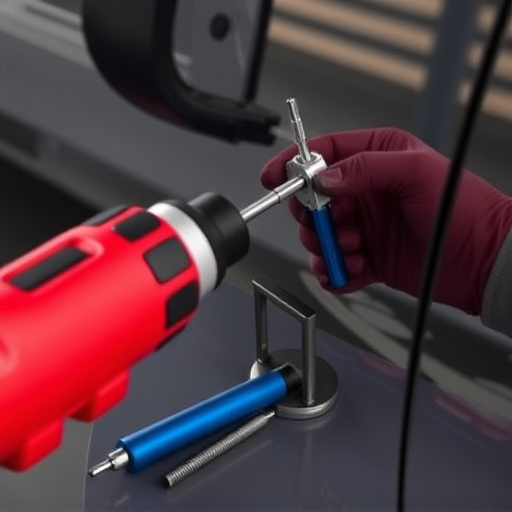Effective hazardous waste management is crucial for corporate success and sustainability in today's business environment. By adhering to stringent safety protocols, specialized disposal methods, and regulations, companies can reduce legal risks, protect their reputation, foster environmental stewardship, and enhance overall operational safety, akin to meticulous preparation and proactive techniques in vehicle body repair.
Hazardous waste management is a critical aspect of corporate responsibility, offering more than just environmental benefits. Effective handling and disposal of toxic materials significantly reduce corporations’ legal exposure and financial liability. This article delves into the multifaceted world of hazardous waste management, exploring its essential role in mitigating risks, enhancing regulatory compliance, and fostering a safer work environment. We examine strategies that businesses can adopt to navigate the legal landscape and avoid costly consequences.
- Understanding Hazardous Waste Risks in Corporations
- The Role of Efficient Waste Management Systems
- Legal Implications and Liability Mitigation Strategies
Understanding Hazardous Waste Risks in Corporations

In today’s business landscape, understanding hazardous waste risks is paramount for any corporation. Many industrial operations generate hazardous materials as byproducts, including toxic chemicals, volatile organic compounds, and even potentially explosive substances. Without proper containment and disposal methods, these wastes pose significant environmental and health hazards to employees, surrounding communities, and ecosystems.
Corporations in various sectors like automotive repair services, collision repair services, and body shop services are particularly vulnerable due to their regular handling of chemicals, solvents, and other hazardous substances. Effective hazardous waste management involves implementing stringent safety protocols, utilizing specialized disposal methods, and adhering to stringent regulatory frameworks. By adopting comprehensive waste management practices, companies can mitigate legal liabilities, protect their reputations, and foster a culture of environmental responsibility.
The Role of Efficient Waste Management Systems

Efficient waste management systems play a pivotal role in hazardous waste management, significantly reducing corporate liability. By implementing robust processes, businesses can ensure that all waste materials, especially those deemed hazardous due to their toxic or flammable nature, are handled, stored, and disposed of according to strict environmental regulations. This proactive approach not only minimizes the risk of accidental releases or leaks but also shields companies from hefty fines and legal repercussions often associated with improper waste disposal.
For businesses operating collision repair centers or providing collision repair services, efficient hazardous waste management is particularly crucial. These facilities deal with a variety of materials—from solvents to metal scrap—that can be classified as hazardous. Effective waste segregation, treatment, and recycling strategies not only help in adhering to environmental standards but also contribute to a safer working environment, fostering a culture of sustainability within these collision repair centers and enhancing their overall reputation.
Legal Implications and Liability Mitigation Strategies

The proper management of hazardous waste is not just an environmental imperative; it’s also a powerful tool for businesses to reduce their legal exposure and mitigate potential liabilities. Companies that generate, store, or dispose of hazardous materials are subject to stringent regulations designed to protect public health and safety. Failure to comply with these regulations can result in significant fines, lawsuits, and damage to the company’s reputation.
Effective hazardous waste management strategies, including proper containment, storage, transportation, and disposal, serve as collision centers for preventing accidents and environmental disasters. By adhering to best practices, businesses can avoid situations that might lead to harmful releases or accidents, akin to a vehicle body repair process where careful preparation minimizes the risk of damage during restoration. Moreover, implementing robust waste management protocols can demonstrate a commitment to sustainability and responsible corporate conduct, similar to dent removal techniques in auto body work—a proactive approach that enhances overall safety and reduces potential triggers for legal disputes.
Effective hazardous waste management isn’t just an environmental imperative; it’s a powerful strategy for corporations to reduce their legal exposure. By implementing efficient waste management systems, businesses can significantly mitigate potential liability risks associated with improper handling and disposal of hazardous materials. This proactive approach not only ensures compliance with stringent environmental regulations but also safeguards corporate reputation and financial stability in the long run.














